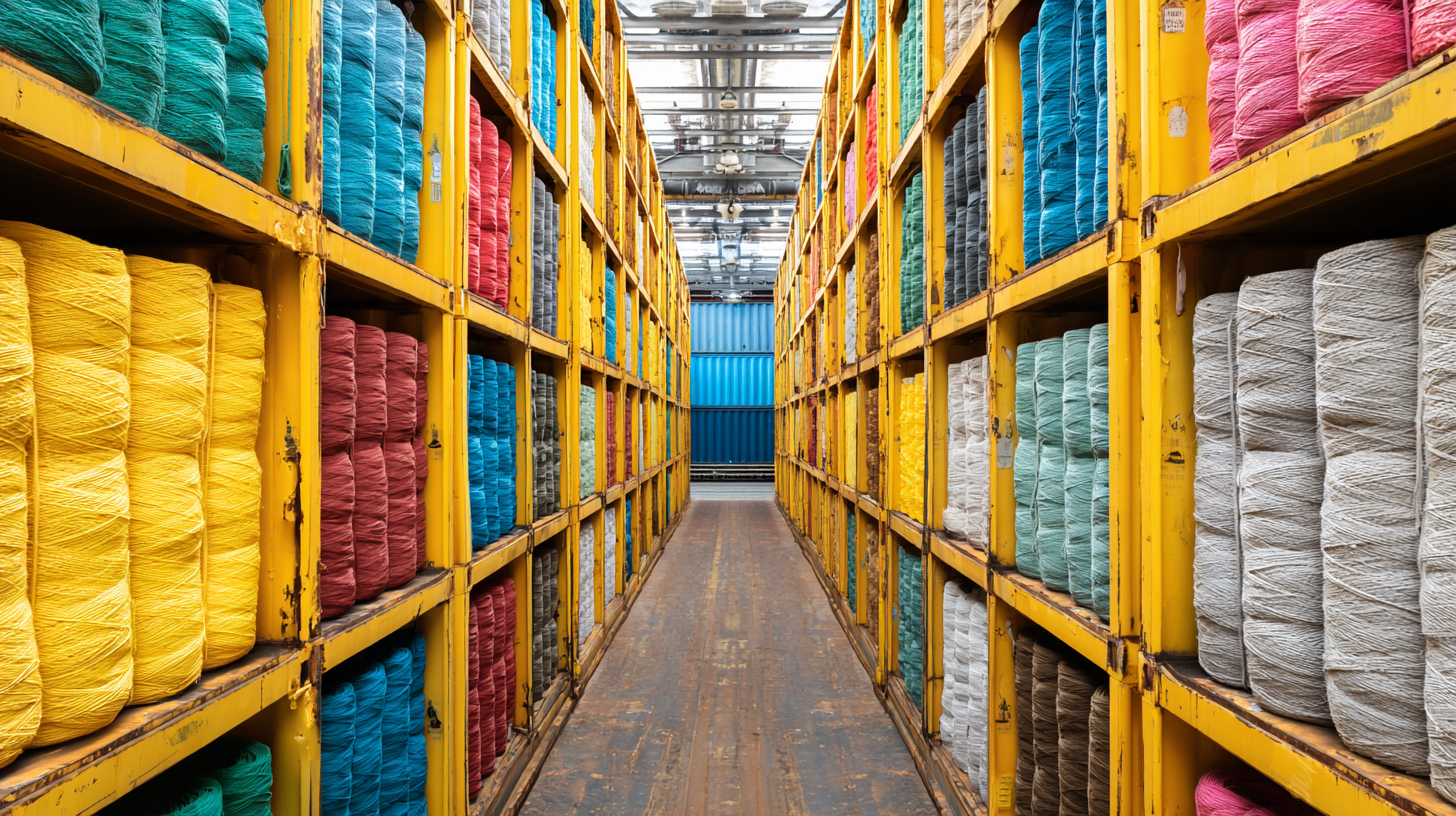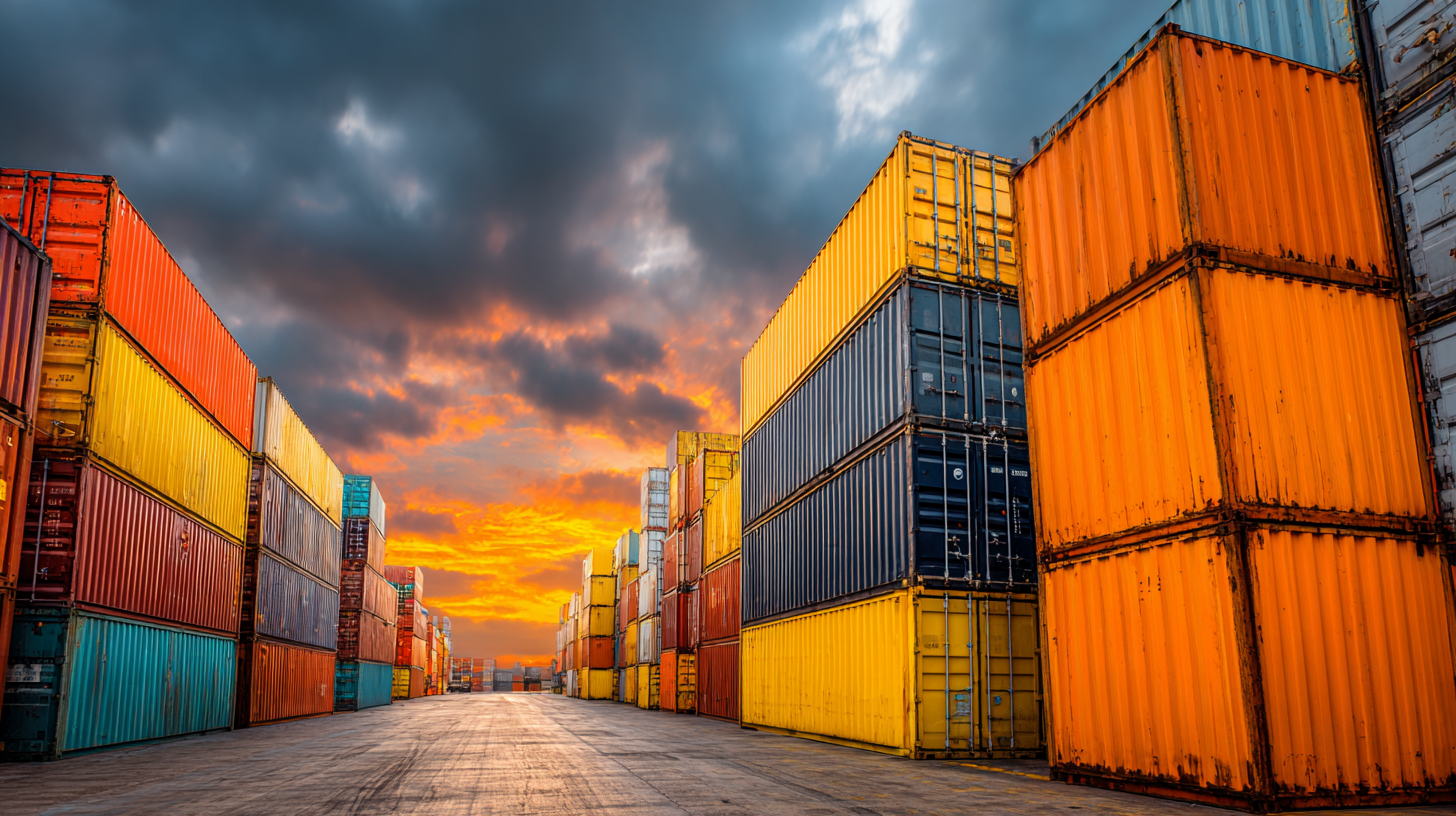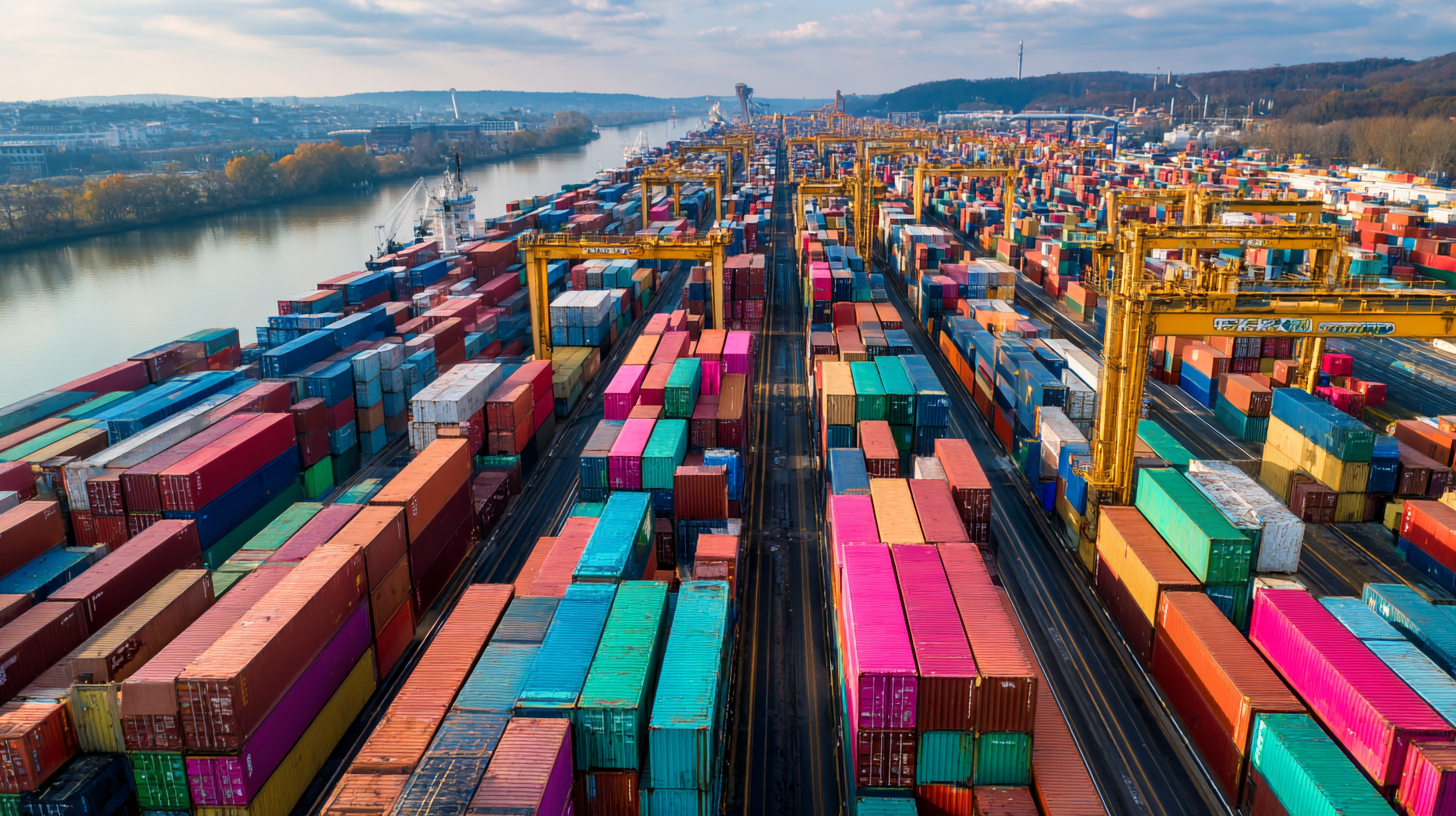As we look toward 2025, the global landscape of container storage is evolving rapidly, driven by increasing demands for efficiency and sustainability in supply chain management. According to a recent report by MarketsandMarkets, the container logistics market is projected to reach $8.5 billion by 2025, underlining the growing importance of optimized storage solutions.
In this context, businesses are seeking innovative strategies to improve their supply chain processes, ensuring swift delivery times and reduced operational costs. The integration of advanced technologies, such as IoT and AI, in container storage systems is proving crucial in enhancing visibility and tracking efficiency. By prioritizing these enhancements, companies can not only meet consumer expectations but also adapt to fluctuating market trends and economic conditions.

This blog will explore key insights and strategies for leveraging container storage effectively, paving the way for optimized supply chains in the coming years.
The container storage market is poised for substantial growth, with projections indicating a market value of $212 billion by 2025 and an astounding compound annual growth rate (CAGR) reaching $400 billion by 2033. This surge is driven by increasing demands in various sectors, including logistics and e-commerce, where efficiency and quick response times are paramount. Companies are now focusing on optimizing their supply chains to meet these demands, leveraging advanced technologies and data analytics to enhance inventory management and storage solutions.
In 2025, the landscape of container storage will be significantly shaped by key trends such as the rise of smart storage systems and the adoption of automated solutions. The integration of artificial intelligence and machine learning will enable businesses to predict storage needs accurately, while reducing operational costs. Furthermore, as sustainability becomes a focal point for many organizations, environmentally friendly storage solutions are expected to gain traction, influencing purchasing decisions and market dynamics. Adapting to these trends will be essential for businesses looking to maintain a competitive edge in an increasingly complex supply chain environment.

In the fast-evolving landscape of global supply chains, optimizing logistics is crucial for maintaining a competitive edge. In 2025, understanding and improving efficiency in supply chain logistics will be more important than ever as companies seek to reduce operational costs and enhance service delivery. One effective strategy is to integrate advanced technology, such as AI and IoT, to streamline operations. These technologies can provide real-time data that helps in forecasting demand, managing inventory levels, and ensuring timely deliveries.
Tip: Implement a centralized inventory management system that utilizes AI-driven analytics to automatically adjust stock levels based on real-time demand signals. This will minimize excess inventory costs while ensuring products are readily available.
Another key approach to boosting efficiency is fostering strong relationships with logistics partners. Collaborating closely with carriers can lead to improved service quality and resilience in the supply chain. Companies should invest time in selecting partners that align not just with pricing but also with shared values regarding sustainability and customer service excellence.
Tip: Conduct regular performance reviews with your logistics partners to assess service quality and identify areas for improvement. Establishing clear communication channels can further enhance collaboration and efficiency.
In today's rapidly evolving market, optimizing container management is key to enhancing supply chain efficiency. Essential technologies, such as AI and blockchain, are playing a pivotal role in streamlining operations. These innovations not only improve cargo traceability but also support global enforcement agencies and bolster customs efficiency, crucial for international trade.
To adapt to emerging trends in container management, companies should prioritize automation and security enhancements. Automation tools help in managing the speed and scalability of operations while delivering stability. When implementing these technologies, consider focusing on data-driven decision-making to fine-tune processes.
Tips:
- Invest in training employees on essential tech skills like data science and machine learning to leverage the full potential of these technologies.
- Consider joining alliances or initiatives that promote smart container solutions to stay ahead in the industry.
- Regularly update your security protocols to protect sensitive cargo, ensuring reliability and compliance throughout the supply chain.
| Region | Market Size (USD Million) | Growth Rate (%) | Key Technologies | Challenges |
|---|---|---|---|---|
| North America | 4500 | 5.2 | IoT, Blockchain | High operational costs |
| Europe | 3800 | 4.8 | AI, Automation | Regulatory compliance |
| Asia-Pacific | 6000 | 6.5 | Cloud Computing, Big Data | Infrastructure limitations |
| Latin America | 1200 | 3.9 | Mobile Solutions, RFID | Political instability |
| Middle East & Africa | 800 | 5.0 | Telematics, VR | Limited technology adoption |
In the ever-evolving landscape of global markets, evaluating the cost-effectiveness of various storage solutions has become crucial for optimizing supply chains. Businesses are increasingly turning to container storage options, which offer flexibility and efficiency. With their ability to be stacked and relocated, containers minimize the need for large warehouse spaces, significantly reducing overhead costs while maximizing product accessibility. By carefully analyzing the operational expenses associated with traditional storage methods versus container storage, companies can make informed decisions that align with their financial goals.
Furthermore, the advent of technology plays a vital role in enhancing the cost-effectiveness of container storage. Integration of inventory management systems with real-time tracking allows businesses to monitor stock levels and optimize storage layouts effectively. This not only streamlines operations but also helps in preventing overstocking and unnecessary expenditures.
As companies look towards 2025, those that adopt innovative storage solutions paired with strategic financial assessments will likely enjoy increased competitiveness in a challenging market environment.
 Sustainable container storage solutions are becoming increasingly vital in the quest for an optimized and eco-friendly supply chain. Implementing best practices in container storage not only reduces waste but also enhances efficiency. One essential tip is to utilize modular storage systems that can adapt to varying volumes of inventory. This flexibility minimizes empty space and ensures that containers are utilized to their full potential, reducing the need for excess storage materials.
Sustainable container storage solutions are becoming increasingly vital in the quest for an optimized and eco-friendly supply chain. Implementing best practices in container storage not only reduces waste but also enhances efficiency. One essential tip is to utilize modular storage systems that can adapt to varying volumes of inventory. This flexibility minimizes empty space and ensures that containers are utilized to their full potential, reducing the need for excess storage materials.
Another important practice is to regularly assess the condition of containers. Maintaining them in good condition prevents leaks and structural damages that could lead to environmental issues. For example, using environmentally friendly cleaning supplies and repairs can help maintain the integrity of containers while also adhering to sustainability standards.
Lastly, consider integrating technology into your storage solutions. Tools such as inventory management software can optimize tracking and reduce the frequency of unnecessary container movements. This not only conserves resources but also lowers carbon footprints associated with transportation. Adopting innovative technologies and sustainable practices will set the foundation for a more responsible and efficient supply chain.
Rob was always very honest and upfront about everything and took the time to explain everything I needed.
“highly recommended. They provided us with a great storage container with ontime services.”
“Bought a used container, its perfect, no leaks and in good condition.”
“Good service and prompt delivery. A great option for temporary storage at a decent price.”
Join our mailing list to get the latest storage container inventory and offers